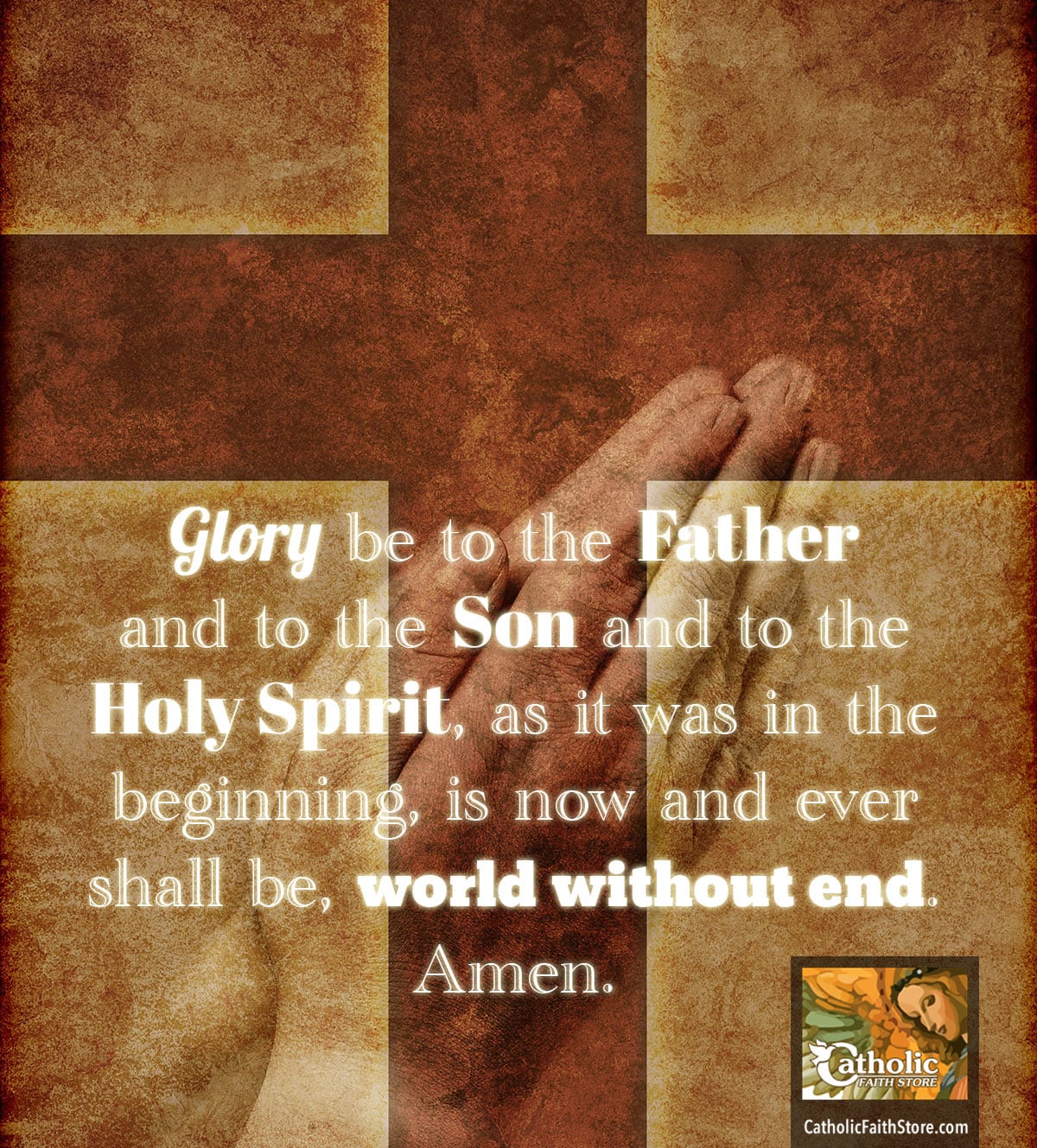
Doxology passed into English from Medieval Latin doxologia, which in turn comes from the Greek term doxa, meaning “opinion” or “glory,” and the suffix -logia, which refers to oral or written expression.


Gloria Patri, also known as the Gloria, Glory Be to the man or, colloquially, the Glory Be, is a doxology, a short hymn of praise to God in various Christian liturgies.It is also referred to as the Doxology (Doxologia ) or Lesser Doxology, to distinguish it from the Greater Doxology, the Gloria in Excelsis Deo.
The Lord’s Prayer in Latin (the “Pater Noster”) PATER noster, qui es in cœlis; sanctificatur nomen tuum: Adveniat regnum tuum; fiat voluntas tua, sicut in …

‘And mayest Thou not lead us to temptation, but deliver us from the evil, because Thine is the reign, and the power, and the glory — to the ages. Amen. “Yours, O LORD, is the greatness and the power and the glory and the victory and the majesty, indeed everything that is in the heavens and the
The Gloria is an ancient hymn of praise to the Trinity that has been in use in the Church since the second century. The opening line of the hymn is taken from Scripture (Lk 2:14), where the angels announce the birth of Christ to the shepherds.

Brief definitions of obscure words starting with the letter D
The Gloria Patri, so named for its Latin incipit, is commonly used as a doxology by Roman Catholics, Old Catholics, Independent Catholics, Orthodox, Anglicans, and many Protestants including Presbyterians, Lutherans, Methodists, Disciples of Christ and Reformed Baptists.
a candidate trying to appeal to the multitude. awed by the multitude of stars in the night sky
D. Please help support the mission of New Advent and get the full contents of this website as an instant download. Includes the Catholic Encyclopedia, Church mans, Summa, Bible and more — all for only $19.99
Black Gospel Music, CDs, videos, books, publications, sheet music, equipment, free midi, and more.




